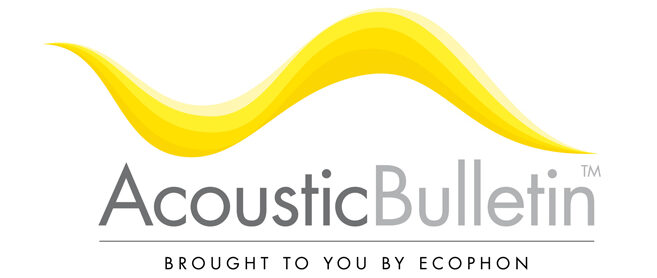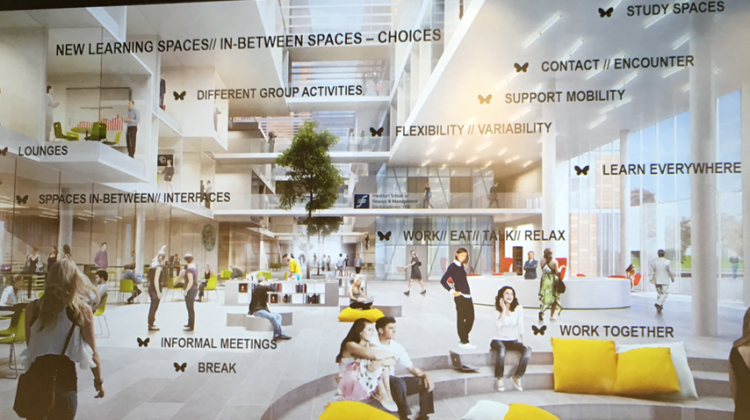
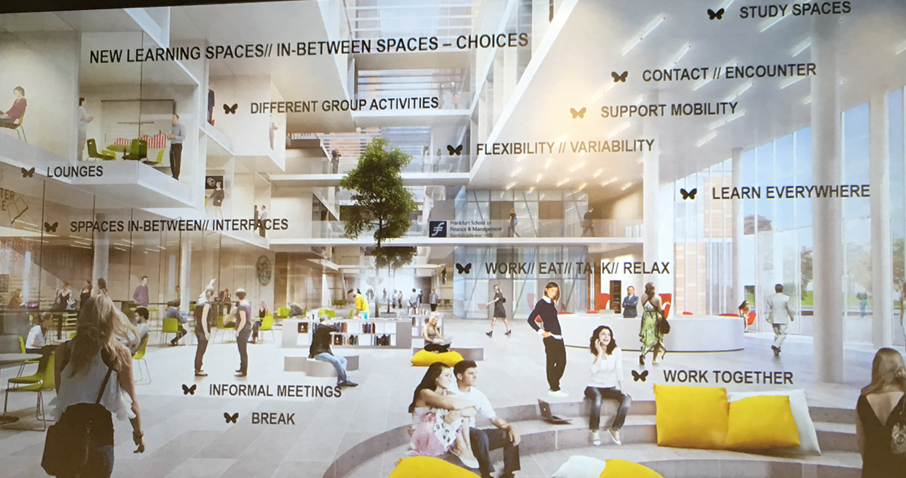
Acoustic Bulletin goes beyond just the acoustic presentation to bring you the broader issues at the recent the Design and Management of Learning Environments in London on May 17th
The programme and discussions during the day focused on the building design and spaces, how they are managed to optimize more effective learning and experience for students. The event was very much about sharing knowledge around research, case studies and driving for post occupancy evaluation and also networking for learning environments enthusiasts. Acoustics was only officially in one presentation, however it was interesting to hear acoustics come up in many presentations and in the Q&A sessions.
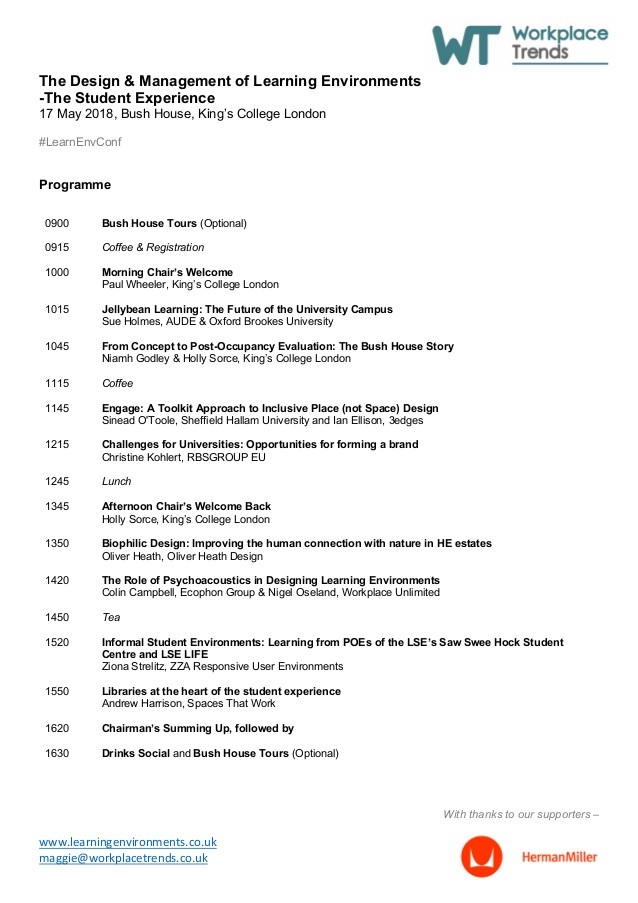
Sue Homes, AUDE & Oxford Brookes University, kicked off the presentations and pointed out that in “2025 80% of jobs don’t exist currently. Given our courses mostly have a vocational element at the end, it isn’t a good selling point to people at an open day to say they won’t necessarily have a job in 7 years time. Our education needs to be more skill based.”
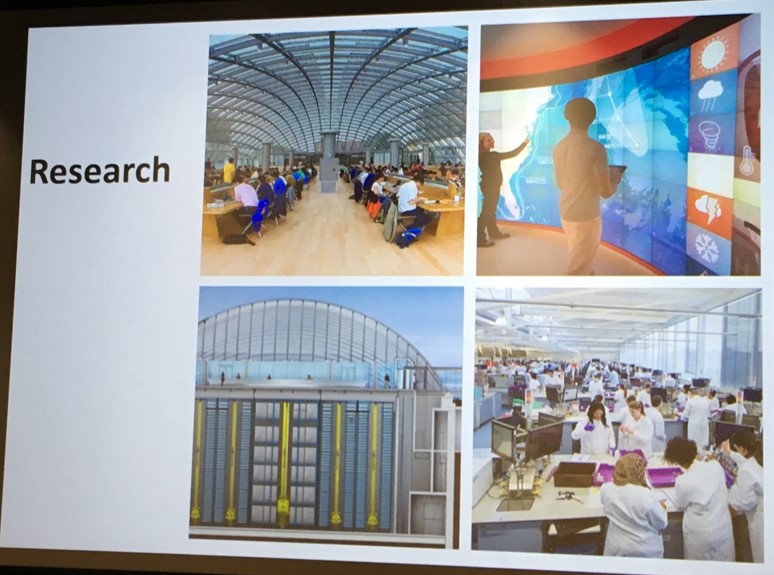
Sue also stressed that “students need to think and challenge more” and they need a variety of social learning spaces which support “blended learning”. However, a recently built and state of the art looking library she visited was a shock as she “couldn’t hear herself think because the aircon was like a jet engine in an airport!”. She said there “too many unis with ‘blended learning spaces’ but blended learning isn’t necessarily happening there”…
In the following presentation Holly Sorce of King’s College London highlighted that their recently occupied new building which was originally open plan didn’t work. They had to focus on change management and shared occupany offices rather than the cellular offices the academic staff were used to and wanted.
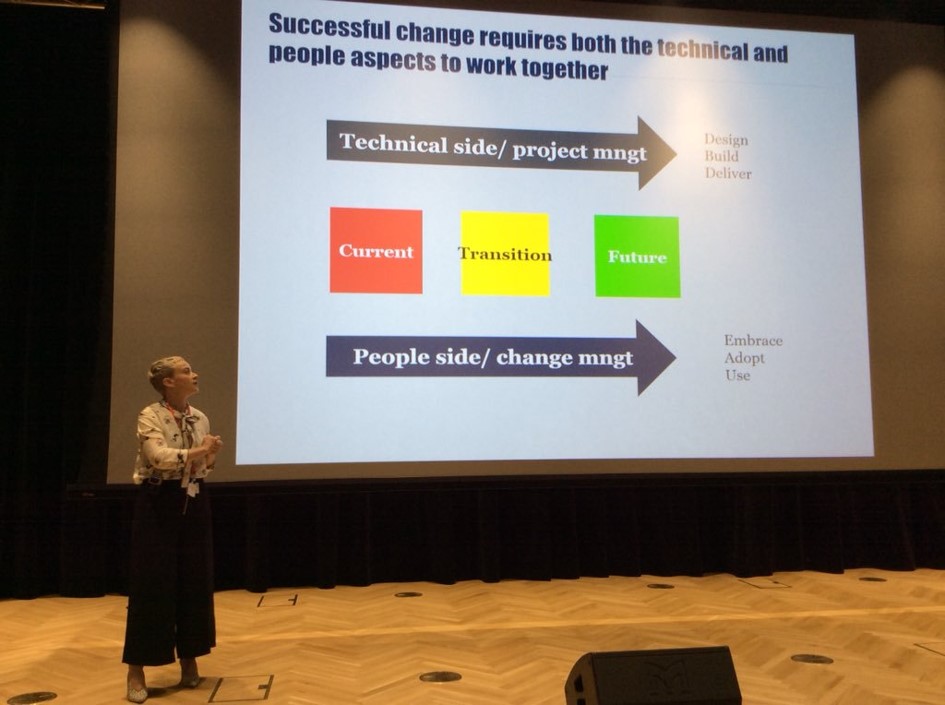
As Holly explained, the shared occupancy offices requirement ‘didn’t go down brilliantly’. Estates focus on technical matters, change management side making sure people would embrace the new spaces. This highlighted the need and importance of change management being involved throughout clarify and support the process, including following up with POE, implementing and supporting any necessary adjustments.
This was followed by Sinead O’Toole and Ian Ellison Sheffield Hallan University who presented a fresh workplace engagement toolkit which gathers feedback input from an early stage.
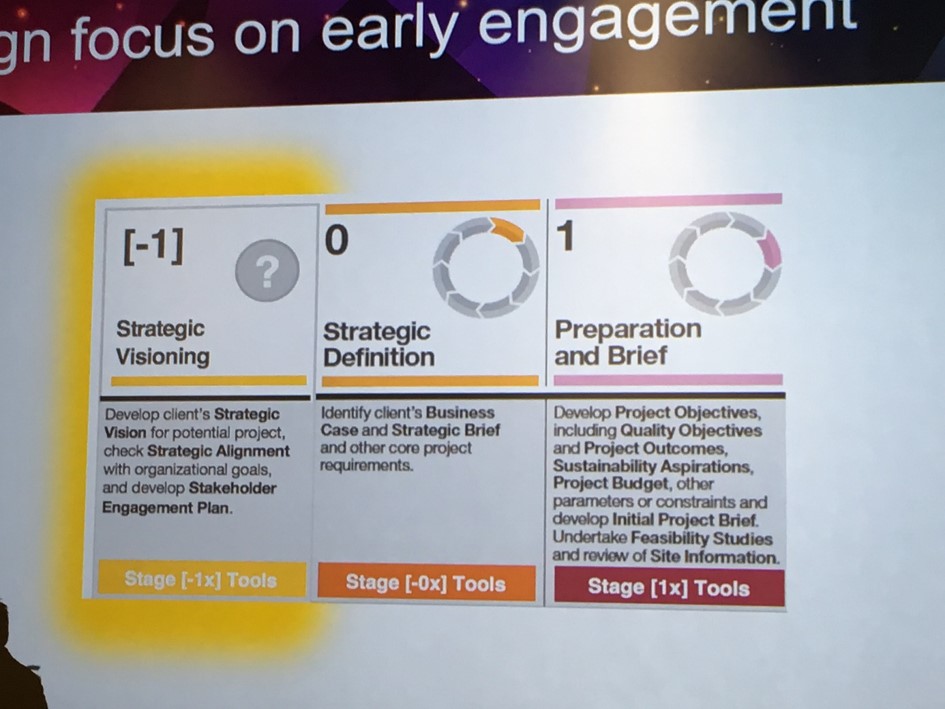
The above two pre-brief stages “-1” & “0” were highlighted as key, before Stage “1” covering the initial project brief. Here,stage “-1” developing the client’s strategic vision and goals including developing a Stakeholder Engagement Plan. Then stage “0”, the Strategic Definition, identifying the client’s Business Case and Strategic Brief. You can register your interest in this workplace engagement toolkit here:
In the final presentation before lunch, Christine Kohlert RBSGroup Munich, stressed the need for spaces supporting students in active groups, engaging in dialogue rather than passively occupying space.
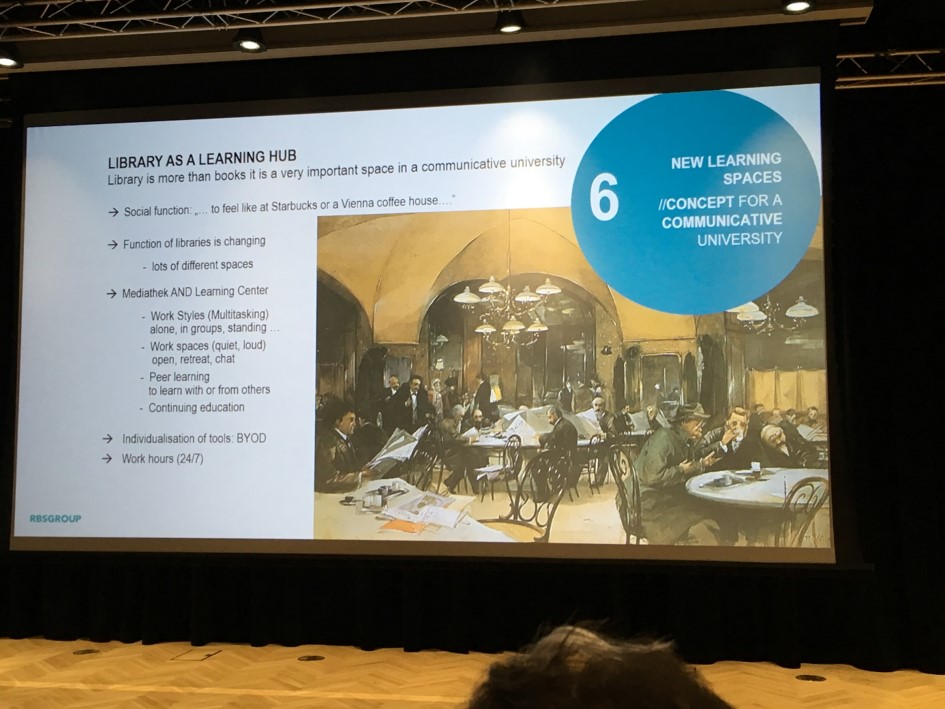
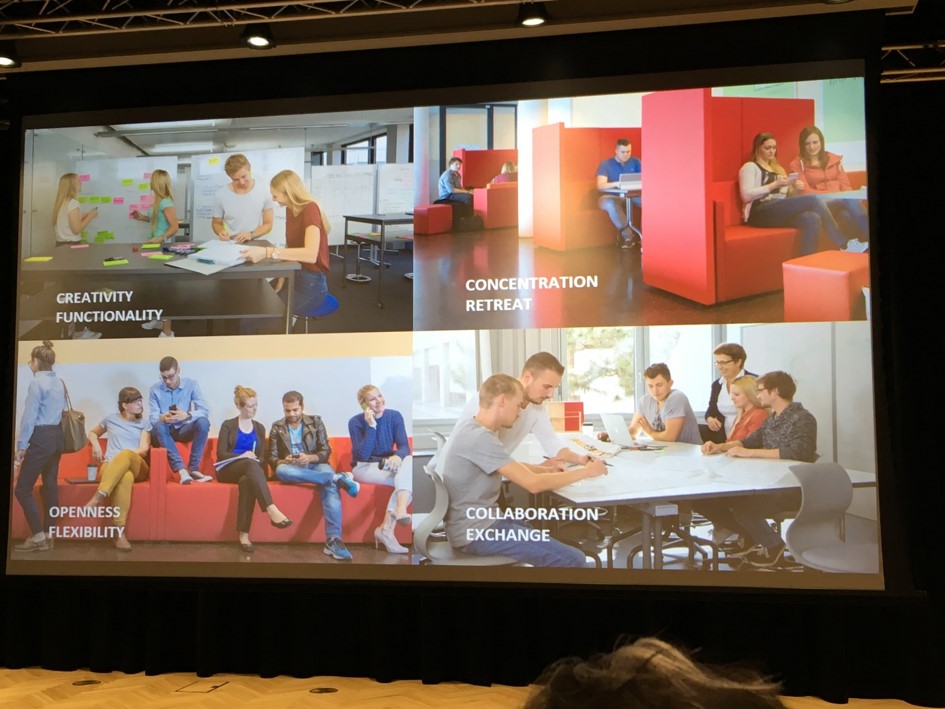
Acoustics came up as an issue where we need to balance quiet and collaborative spaces and most of these need to support good speech communication….
The first presentation after lunch by Oliver Heath of OH Design captured the audiences imagination. He highlighted why we need to connect with nature more, both outdoors and the opportunities to bring nature Indoors to support better health and well being.
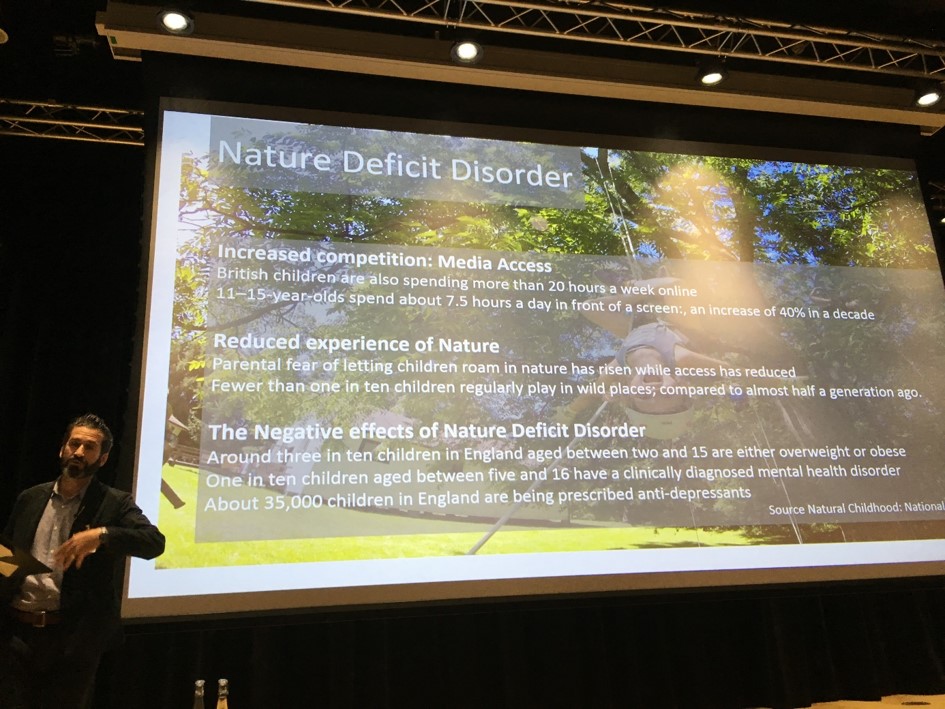
Then Nigel Oseland of Workplace Unlimited and Colin Campbell of Saint-Gobain Ecophon for Sweden, jointly presented about the role of Psychoacoustics in the Design of Learning Environments.
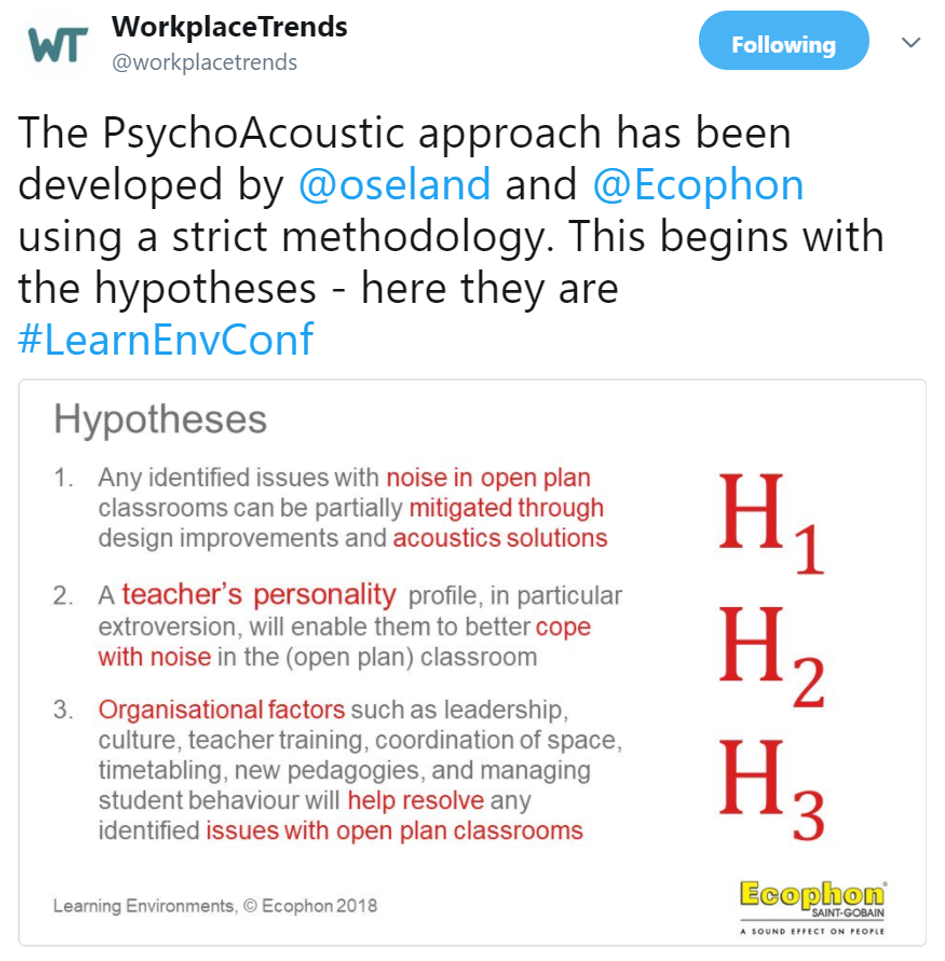
Teaching and Learning activities which move from a traditional monologue to an interactive dialogue have been found to give much deeper learning outcomes. The report mentioned below is from the ILETC Technical Report.
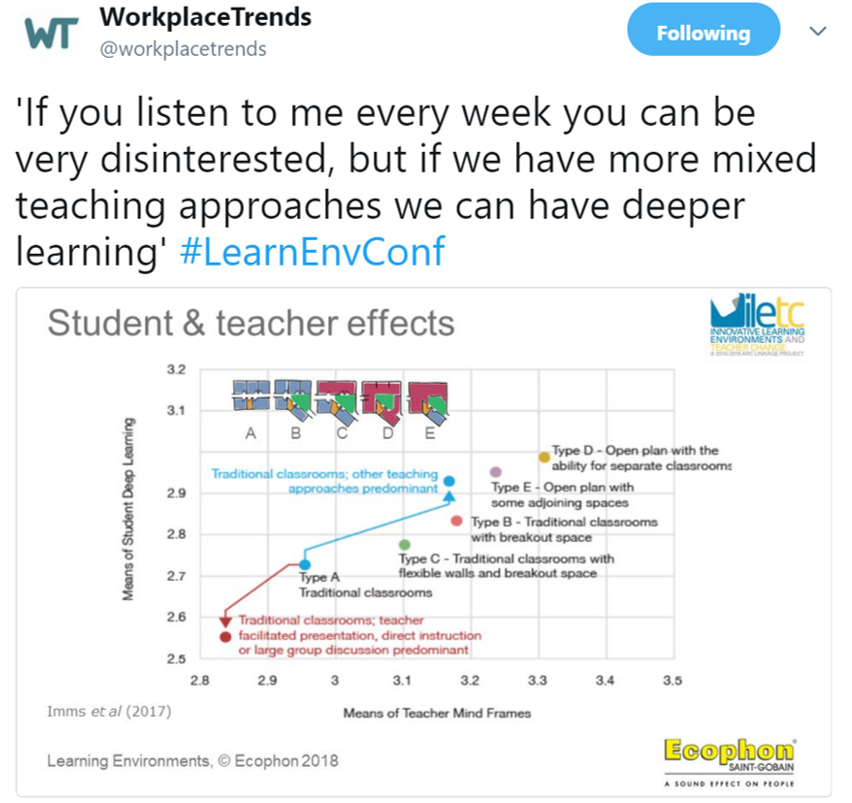
Other important considerations for innovative learning environments (ILEs) or more open spaces to complement a good acoustic design are; the management including the culture of the organisation is key as is the zoning of the physical layout and the furniture layout.
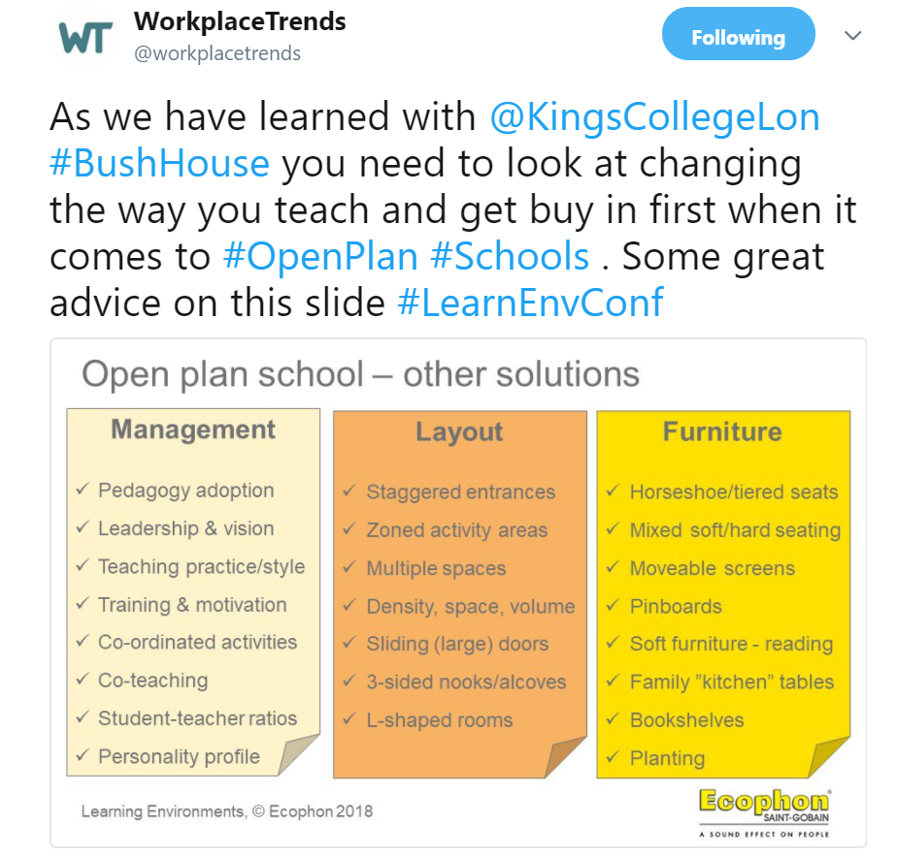
The psychoacoustic approach to Learning Environments will be available in the near future contact Nigel here if you would like a copy.
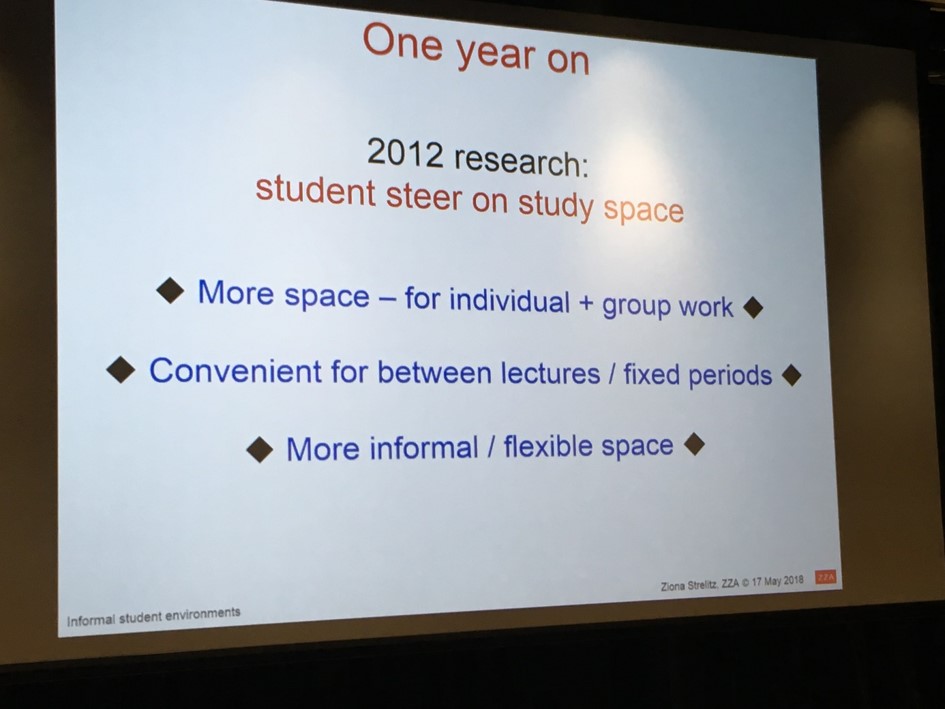
Ziona Strelitz of ZZA Responsive User Environments followed with an insightful presentation. Focussed on Post Occupancy Evaluation (POE) at London School of Economics (LSE) highlighting the vitality provided by informal Learning spaces.
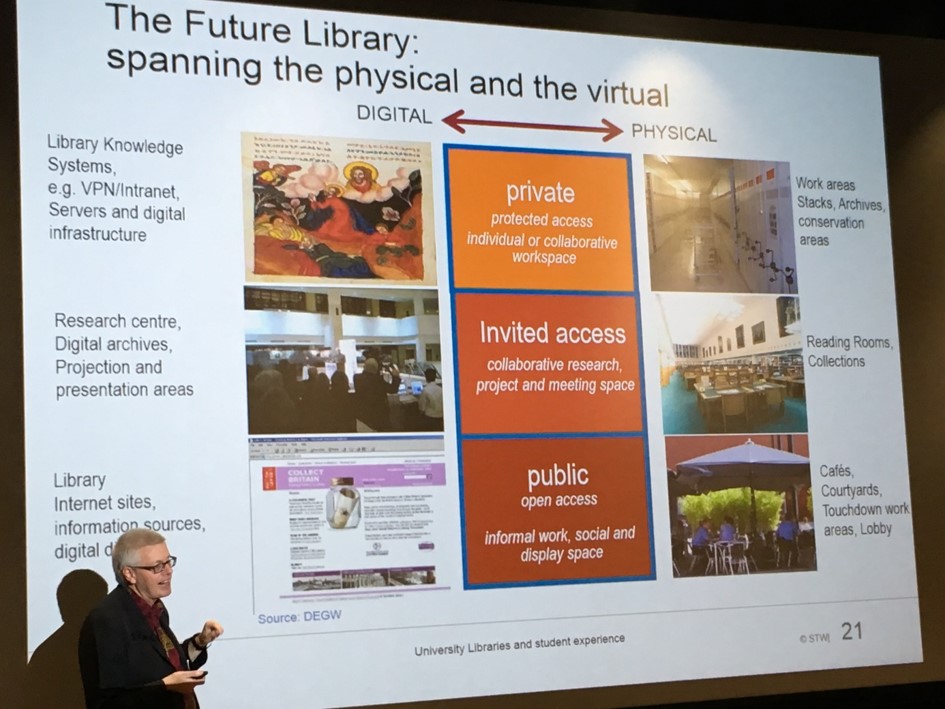

Andrew Harrison, Professor of Practice at the University of Wales, finished the day with a rousing and passionate presentation. Making a compelling case for Learning Environments to be at the heart of future Learning Environments. Where they can be a catalyst for deeper learning connecting the digital, the local Community and also the future workplace. Not forgetting his highly informed and specially educated librarians on hand to support.
More info about the excellent event in their comprehensive event blog here and more about Workplace Trends Conferences here
